1975
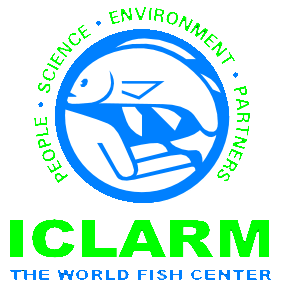 Established as International Center for Living Aquatic Resources Management (ICLARM) at the University of Hawaii.
Established as International Center for Living Aquatic Resources Management (ICLARM) at the University of Hawaii.
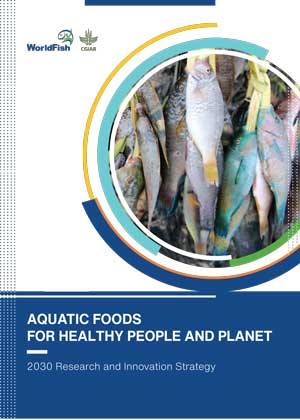
Over the past 45 years, WorldFish has firmly established itself as a global leader in research and innovations in sustainable aquaculture and fisheries. Our work has enhanced the lives of millions, solving real-world problems through an extensive network of partnerships and multidisciplinary research collaborations across Africa, Asia and the Pacific.
Over the next 10 years, we aspire to become a world-class research and innovation organization that creates, advances and translates scientific research on aquatic foods systems. The purpose of the research is to accelerate the sustainable transformation of global food systems toward nutritious diets that sustain the health of people and the planet. We recognize the importance of responding effectively to external change and delivering relevant research solutions at scale for sustainable transformation at all levels. To do this, we must be prepared to reinvent ourselves. In responding to the COVID-19 pandemic, we have devised a new organizational strategy and business model that reimagines the ways in which we will operate in the next decade to successfully weather the uncertainties of the future and thrive.
Our focus will be on mobilizing our world-class capabilities and resources. This will sharpen the agility and responsiveness of our business operations, help us adapt to new ways of working and collaboration and ensure long-term financial sustainability and more funding for scientific research on aquatic food systems. As a networked organization embedded in a larger innovation ecosystem of partners, including One CGIAR, our model of operation and beyond is guided by our values that stand for Learning, Excellence, Accountability and Diversity (LEAD).
We recognize that our scientific work and impact in the world is enhanced when we bring together a diversity of backgrounds, skills, disciplines, talents and partnerships that inform the way we work and shape our organizational culture and workplace, as well as our aspiration to be a global thought leader.

L earning: We are relentlessly curious and seek to learn from challenges and from others. We embrace discovery, adaptation and growth. We rely on data and evidence to deepen our understanding, make the best decisions and drive bold innovation.
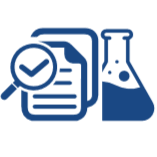
E xcellence: Science of the highest quality and professional standards is the foundation for all we do. We actively partner with others who share our passion for excellence and impact.

A ccountability: We take ownership of our work and promptly correct mistakes to the greatest extent possible. We honor our commitments to partners and to each other. We measure ourselves against the highest standards of integrity and fiscal responsibility, and we are open and transparent in communicating our results.

D iversity: We recognize it takes people with different ideas, talents, disciplines and backgrounds to make our work stand out. We encourage differing perspectives, healthy debate and an inclusive environment for all, and at every level, to create solutions to complex problems.
Figure 8 presents the key organizational elements and specific commitments under each to transform ourselves into a world-class organization fit for the 21st century.
Over the next 10 years, we aspire to become the go-to think tank for credible, cutting-edge knowledge, data and evidence on aquatic food systems in One CGIAR and in the wider scientific and policy community. We will increasingly translate scientific research on aquatic food systems into scalable solutions with impact on human health and nutrition, climate change, environmental sustainability, gender equality and social justice, poverty and other sustainable development issues.
Our philosophy and practices on scientific research will be guided by three key commitments:
Research excellence: We will design, implement and deliver scientific research of exceptional quality and ethical integrity on aquatic food systems across natural and social sciences, and in line with the One CGIAR Quality of Research for Development Framework.
Research growth: We will expand scientific knowledge and understanding of aquatic food systems and their contribution to sustainable development solutions by securing more research, partnerships and funding commitments within One CGIAR and beyond.
Research impact and influence: We will maximize the cultural, social, economic and environmental benefits derived from our research on aquatic food systems, and increase the impact and influence of aquatic food systems research in One CGIAR, in the global agricultural research agenda and in the sustainable development agenda, at national and global levels.
At WorldFish, we believe multidisciplinary and crosssector collaboration is at the heart of scientific discovery and the formulation of innovative solutions for tackling complex problems of great significance to human wellbeing and environmental sustainability. We have a strong legacy of working in partnership with a broad range of actors who play an important role in co-creating demanddriven research and translating scientific data and evidence into action.
Our partnerships span all levels of governance, from global level decision-making to national, subnational and household levels. They include international institutions, global conventions and regional bodies, policymakers, scientists at One CGIAR, partner research and academic organizations, national agricultural research and extension systems (NARES), business leaders and entrepreneurs, local and regional planners, community and civil society organizations, and fisher and fish farmer households.
Over the next 10 years, we aspire to build and nurture a global movement of partners and stakeholders across the public and private sectors. Together, we will research, fund and support a transformative agenda that recognizes the growing importance of aquatic foods in global agricultural research, the transformation of global food systems and the achievement of the SDGs.
As custodians of research, skills and knowledge of aquatic food systems in One CGIAR, we will build and convene critical research collaborations and partnerships that enable successful links with land-based food systems within and outside One CGIAR.
Our philosophy and practices on impact-oriented partnerships for innovation and sustainability will be guided by three key commitments:
Mission and impact-oriented partnerships: We will engage and deepen collaboration with core partners along the research-for-development continuum to successfully deliver on the vision of the WorldFish’s 10-year institutional strategy for research on aquatic foods systems and on the wider mission of One CGIAR toward “ending hunger by 2030 – through science and innovation to transform food, land and water systems in a climate crisis.”
Innovation ecosystem of partners: We will build and nurture an innovation ecosystem of partners along the public and private sector spectrum, with diverse skills, knowledge, tools and mindsets to co-create shared value and sustainable societal and environmental impact through joint projects and investments that are guided by scientific evidence and innovation.
Business development and entrepreneurship: We will build the organizational muscle, capacity and mindset for business development and entrepreneurship to engage the support of like-minded private sector actors who share our commitment to translating scientific knowledge, assets and discoveries into product, business and market innovations with positive social, economic and environmental impacts.
As part of One CGIAR, we are committed to fair, safe and inclusive workplaces. Our diversity powers our innovation. It is critical for our mission. We are driven by our LEAD values and strive to be a thriving and inclusive community of diverse people committed to learning and innovation, and with passion for making a difference in the world.
We believe in multiple perspectives coming together to generate new ideas and develop new ways of doing things. This collective intelligence will set us apart in being able to address the complex problems we seek to solve with an ability to understand the trade-offs, and in doing so make better decisions.
We will continue to build an organizational culture with strong foundations in 21st-century skills and core competencies. This will enable us to exude excellence and thought leadership, to accomplish work in partnership with others for sustainable innovation and impact and to meet our commitments to people, partners and the environment.
Our philosophy and practices on people and culture will be guided by three key commitments:
Attract and retain high-performing talent: To maintain and enhance our scientific and professional strengths, we will recruit and support talented people of outstanding potential at all levels in line with our organizational values and our 21st-century core competencies framework. We will enhance the efficiency and quality of our human resources services and continuously improve our hiring and talent development strategies to effectively attract, reward and retain high-performing talent applicants, and to ensure equality of opportunity for all.
A high-performance culture with foundations on learning, growth and innovation: We will invest in building an organizational culture that helps us to collectively achieve high levels of performance and results consistently over time. Empowered and engaged people focused on constant learning and growth will be the trademark of who we are and what we can do together. This will help us pioneer new thinking and implement bold innovations that provide solutions to real-world challenges.
Gender, diversity and inclusion: These are more than just words to us. They are fundamental principles guiding how we build our teams, cultivate leaders and create an inclusive organization that is the right fit for every person inside of it and also mirrors the diverse communities we serve.
Research alone is not enough to turn data, insights and innovations into concrete action and tangible impacts on the ground. WorldFish is an international research and innovation organization with a world-class reputation for scientific excellence and a vast network of impact-oriented partners. As such, we believe it is our duty to effectively engage with society and proactively share and communicate the results of our research work beyond the scientific community. This is critical to shaping solutions to real-world challenges.
To us, communication is a critical 21st-century skill. It is a strategic organizational function that allows us to provide a tangible return on society’s trust and continued investment in science and in us as a vibrant community of scientists who care about the meaningful impact of our work in the real world. It also plays an important role in how staff, partners and stakeholders interpret the cultural landscape of our organization in terms of who we are, what we stand for, what we value and why our mission matters. Aside from helping the public appreciate the wonder, pleasure and critical importance of science to our lives, communicating scientific discoveries and research evidence effectively is critical to important decisions from household to global levels that affect our quality of life and the future of our planet.
Over the next 10 years, we will use evidence-based communications to make aquatic foods part of the conversation to address critical sustainable development challenges. At the same time, we will note the rightful place and contribution of aquatic food systems to the global call to action for a food systems transformation to healthier and sustainable diets.
Our philosophy and practices of communications, in varied forms and mediums, will be guided by three key commitments:
Advocacy and strategic outreach: We will resource and use evidence-based communications for advocacy and strategic outreach to stimulate increased public awareness of and policy discourse on aquatic foods, as well as public and funders’ interest in the mission and research work of WorldFish, One CGIAR and our partners.
Internal communications: We will strengthen communications internally to ensure shared understanding of the organizational vision, mission, values and research work to (a) stimulate an open and high-performance culture of learning, knowledge sharing and innovation (b) facilitate increased collaboration across disciplines, functions and geographical locations, and (c) celebrate individual, team and organizational achievements.
Digital transformation: We will use innovative information and communication technologies and data-rich technology platforms to share, translate and communicate research data, knowledge and insights with the largest numbers and broadest kinds of internal and external stakeholders in fast, compelling, engaging and cost-effective ways. We will also enhance learning, new ways of working and digital savvy leadership at individual, team and organizational levels.
We recognize that effective mobilization and control over our resources underpins all our aspirations of success. We will be diligent in stewarding our resources to ensure the financial and environmental sustainability of the organization and to continue to invest in research on aquatic food systems and organizational development in the future.
Our philosophy and practices on effective and sustainable mobilization and management of our resources will be guided by four key commitments:
Long-term financial sustainability: We will develop an innovative business model that allows us to protect and grow our income. We will outline a strategic plan of action to new business development and impact-oriented partnerships to diversify our funding sources, support long-term research activities and ensure our financial sustainability.
Efficient and agile financial and business operations: We will strengthen our customer orientation approach to all financial and business operations. This will enable us to swiftly and efficiently meet the demands of different constituencies within and outside our organization and also increase our ability and agility to respond to unforeseen disruptions and changes in the external environment.
State-of-the art physical and digital infrastructure: We will improve the physical and virtual workplace to bring together researchers, partners and staff from different backgrounds, disciplines and geographies. This will enable them to create, learn and innovate and will also improve digital literacy for discovering, evaluating, visualizing, sharing and communicating important research and business insights. It will also help us use IT systems effectively and foster a sense of inspired community.
Minimize our carbon footprint and environmental impact: We will develop and implement a comprehensive environmental sustainability policy and metrics to guide our actions. This will reduce the carbon footprint and the environmental impact of all our research and business operations.
Real transformation in isolation is very rare. It takes context and experience to spark and inform innovation, including many important partners and stakeholders, to bring science-based solutions to bear fruit in the real world. Our vision for this comprehensive 10-year institutional strategy for research on aquatic foods systems builds on our past achievements and accomplishments.
Over the past 45 years, we have amassed a wealth of knowledge and expertise in fisheries and aquaculture and established a vast network of over 250 partners in many low- and middle-income countries across Africa, Asia and the Pacific. During this time, we have learned that to create truly disruptive ideas and accelerate innovation and transformation at speed and at scale, we must capitalize on existing knowledge, build on our past achievements and lessons learned, and leverage our diverse network of partners across the public and private sectors. We have already made our mark in the world with many innovations, landmark studies and global information databases. These have helped advance scientific thinking, increase public knowledge and spur social and economic development in many low- and middle-income countries in Asia, Africa and the Pacific.
 Established as International Center for Living Aquatic Resources Management (ICLARM) at the University of Hawaii.
Established as International Center for Living Aquatic Resources Management (ICLARM) at the University of Hawaii.
Established as an independent entity in Manila, Philippines.
Key innovation: The Thomson Table compares ‘two distinct world fisheries’ and coins the term "small-scale fisheries".
Pacific research program opens in Solomon Islands.
Africa research program opens in Malawi.
Asia research program opens in Bangladesh.
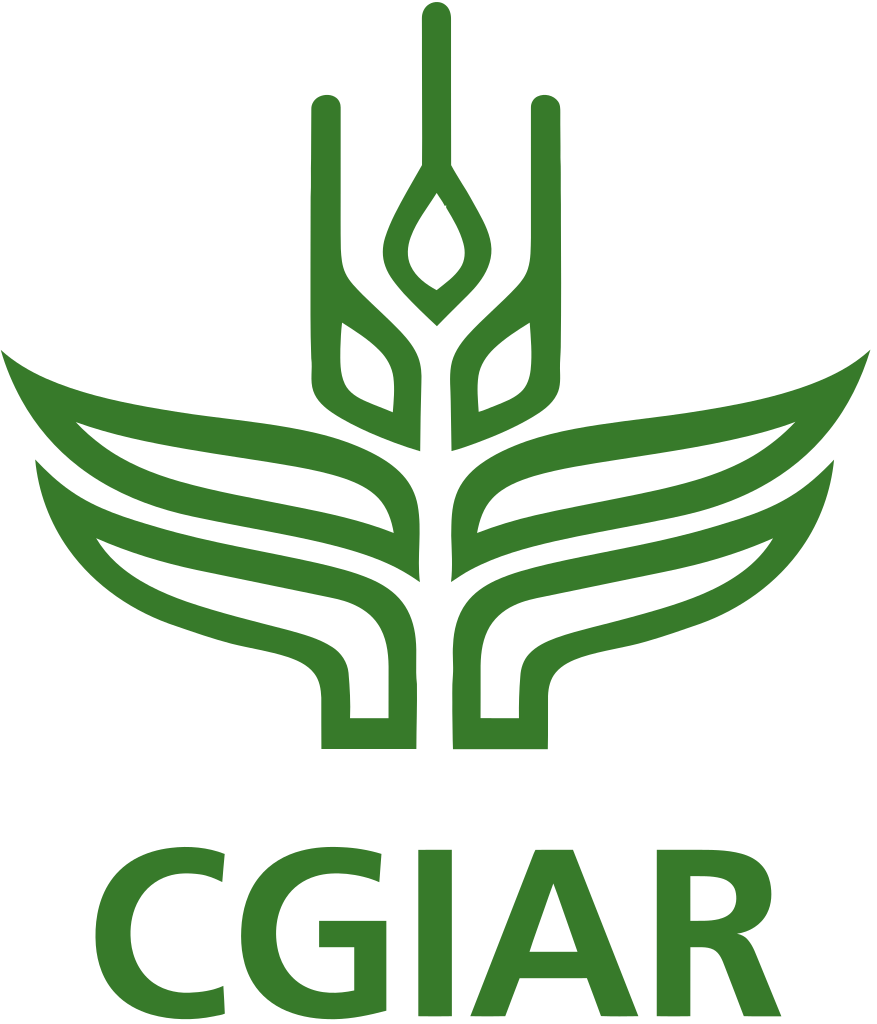 Joins CGIAR.
Joins CGIAR.
Landmark study: The concept of including communities in fisheries management transforms the dominant state-led model. Co-management becomes gold standard for sustainable fisheries.
Key innovation: Sustainable management tools for wild fisheries in the tropics offers contextspecific solutions different from those developed in northern climates.
Key innovation: Genetically Improved Farmed Tilapia (GIFT) tilapia is disseminated to Bangladesh, Brazil, China, Malaysia, Philippines, Sri Lanka, Thailand and Vietnam. By 2017, tilapia is the world’s most-farmed fish, over 50% of which is derived from GIFT.
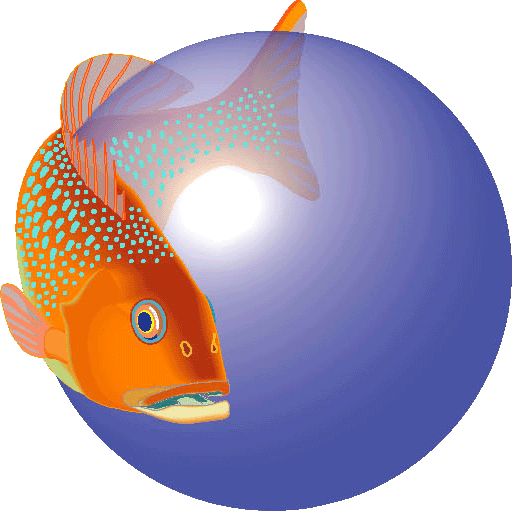 Global database: Establishes FishBase, a database of finfish species. It’s used as a dynamic ecological tool widely cited in scholarly publications.
Global database: Establishes FishBase, a database of finfish species. It’s used as a dynamic ecological tool widely cited in scholarly publications.
Key innovation: First GIFT released.
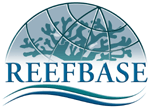 Global database: Establishes ReefBase, an information system for coral reef resources monitoring reef health and the quality of life of reef-dependent people.
Global database: Establishes ReefBase, an information system for coral reef resources monitoring reef health and the quality of life of reef-dependent people.
Establishes Africa Aquaculture Research and Training Center (AARTC), a regional center for genetics innovation in Abbassa, Egypt.
Integrated Aquaculture Technologied Platform: First of 12 global fish breeding programs established at AARTC. The GIFT tilapia program kickstarts Egypt’s aquaculture growth.
Policy engagement: Chairs High-Level Panel of External Experts to the UN Committee on Fisheries addressing governance and food security challenges.
Establishes new headquarters in Penang, Malaysia.
 WorldFish: New brand name adopted
WorldFish: New brand name adopted
Landmark study: Publishes Fish to 2020: Supply and Demand in Changing Global Markets the first quantitative study on fisheries policy issues in food and agriculture.
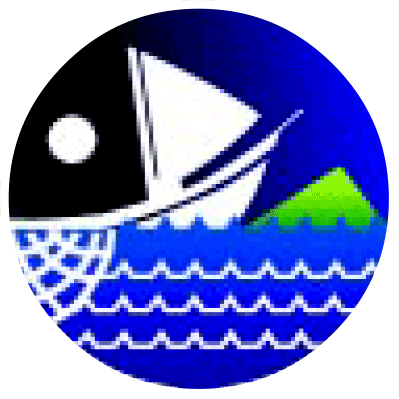 Global and regional database: Launches Fisheries Resource Information System and Tools (FiRST), a data management system for trawl survey data. FiRST software is used to set up TrawlBase, containing historical survey results from 10 Asian countries.
Global and regional database: Launches Fisheries Resource Information System and Tools (FiRST), a data management system for trawl survey data. FiRST software is used to set up TrawlBase, containing historical survey results from 10 Asian countries.
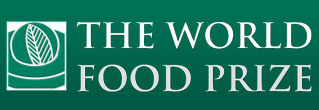 World Food Prize: Dr. Modadugu Vijay Gupta, a WorldFish biologist and fisheries scientist is awarded for work on low-cost aquaculture through GIFT tilapia.
World Food Prize: Dr. Modadugu Vijay Gupta, a WorldFish biologist and fisheries scientist is awarded for work on low-cost aquaculture through GIFT tilapia.
Egypt producing WorldFish improved tilapia becomes the world’s 8th largest aquaculture producer.
Bangladesh becomes the world’s 5th largest aquaculture producer, using improved technologies developed by WorldFish.
Landmark study: Findings show small fish’s importance to low-income households, argues in nutritional terms small fish are more similar to fruit and vegetables than to poultry, cattle.
Landmark study: Blue Frontiers study provides comprehensive analysis of global aquaculture across major species and farm production systems.
 Leads CGIAR Research Program on Aquatic Agricultural Systems (AAS)
Leads CGIAR Research Program on Aquatic Agricultural Systems (AAS)
Key innovation: Nutritionsensitive aquaculture plays lead role in food systems management in Bangladesh.
Key innovation: Rice-field fisheries management integrating sustainable management of water, rice and aquatic foods is developed by WorldFish and adopted in Cambodia.
Landmark study: Hidden Harvest: The Global Contribution of Capture Fisheries is published with WorldBank and FAO.
Key innovation: Nutritional fish-based products adopted by women and children in the first 1000 days of life in low-income households in Asia.
Integrated aquaculture technologied platform: Establishes carp breeding program in Bangladesh.
Key innovation: Research on integrated fish-rice systems transforms Myanmar agricultural policy and offers a blueprint for Asia and Africa.
Policy engagement: FAO Member States formally commit to fisheries co-management, a key WorldFish research innovation.
Integrated aquaculture technologied platform: Establishes GIFT program in Kedah, Malaysia.
Policy engagement: Joins the Steering Committee of the High-Level Panel of Experts advising the UN Committee on Food Security and Nutrition.
Landmark global study:Launches Illuminating Hidden Harvests study with FAO and Duke University building on 2012 Hidden Harvest results and extends research to over 50 countries.
 Leads CGIAR Research Program on Fish Agri-food Systems
Leads CGIAR Research Program on Fish Agri-food Systems
Landmark agreement: MoU with FAO cements research-policy-development partnership for sustainable fisheries and aquaculture.
Policy engagement: Joins global Blue Foods Assessment, with Stanford University and Stockholm Resilience Center, to fill knowledge gaps around aquatic foods.
Policy engagement: Joins experts advising the High-Level Panel for a Sustainable Ocean Economy, producing a series of Blue Papers on the nexus of the ocean and economy.
Landmark agreement: Signs research MoU with IWMI and IRRI for integrated aquatic food production and focusing on nutrition-sensitive management of rice-fish systems.
WorldFish amends its constitution to adopt the concept of ‘aquatic food systems’ as new strategic direction for multidisciplinary research partnerships.
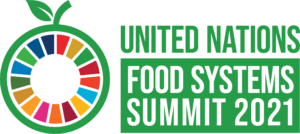 Policy engagement: Joins expert group to lead one of the five action tracks to shape 2021 UN Food Systems Summit.
Policy engagement: Joins expert group to lead one of the five action tracks to shape 2021 UN Food Systems Summit.
Key innovation: Releases genetically improved rohu carp to farmers in Bangladesh.